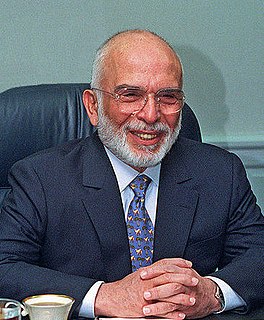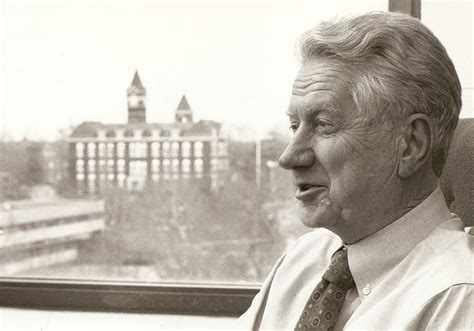A Quote by Albert Einstein
The Jewish scriptures admirably illustrate the development from the religion of fear to moral religion, a development continued in the New Testament. The religions of all civilized peoples, especially the peoples of the Orient, are primarily moral religions.
Related Quotes
An important advance in the life of a people is the transformation of the religion of fear into the moral religion. But one must avoid the prejudice that regards the religions of primitive peoples as pure fear religions and those of the civilized races as pure moral religions. All are mixed forms, though the moral element predominates in the higher levels of social life. Common to all these types is the anthropomorphic character of the idea of God.
[Giving] is the essence of the great religions of the world - whether you are discussing the Muslim, Hindu, Jewish or Christian religion. It is an essential fundamental principle of all religions, whatever stage of development a society has reached, to sympathize with others and to promote that spirit of equality.
All religions are not the same. All religions do not point to God. All religions do not say that all religions are the same. At the heart of every religion is an uncompromising commitment to a particular way of defining who God is or is not and accordingly, of defining life's purpose.
Anyone who claims that all religions are the same betrays not only an ignorance of all religions but also a caricatured view of even the best-known ones. Every religion at its core is exclusive.
It should not be strange that the values cherished by all the three major religions are the same, since they originate from a common source. For example, Islam, the predominant religion in the Middle East, accepts as an integral part of its religious teachings both the Old and the New Testaments. If this commonality of moral traditions among the world's major religions does not say something about the universality of religion, it does say something about the universality of mankind.
It is this subtle dimension of understanding that marks the southwestern Indian peoples from other religions and separates tribal peoples from the world's religions. Somewhere in the planetary history religious expression changed from participation in the sound, color and rhythm of nature to the abstractions of man outside this context pleading for temporary respite and hoping in the next life to return to the Garden.
RELIGION is one's opinion and belief in some ethical truth. To be a Christian is to have the religion of Christ, and so to be a believer of Mohammed is to be a Mohammedan but there are so many religions that every man seems to be a religion unto himself. No two persons think alike, even if they outwardly profess the same faith, so we have as many religions in Christianity as we have believers.
True religion has a universal quality. It does not find fault with other religions. False religions will find fault with other religions; they will say that theirs is the only valid religion and their prophet is the only saviour. But a true religion will feel that all the prophets are saviours of mankind.
In the mystic traditions of the different religions we have a remarkable unity of spirit. Whatever religion they may profess, they are spiritual kinsmen. While the different religions in their historic forms bind us to limited groups and militate against the development of loyalty to the world community, the mystics have already stood for the fellowship of humanity in harmony with the spirit of the mystics of ages gone by.
The word religion literally means, in Latin, to link or bind together; and despite the vast variation in the world's religions, Wilson shows that religions always serve to coordinate and orient people's behavior toward each other and toward the group as a whole, sometimes for the purpose of competing with other groups.
Most of the founding fathers, sympathetic with and influenced by the European Enlightenment, saw religion - natural religion, that is - as a potential good, but with equal clarity they saw the religions of existing institutions and religions based on a fixed scriptural revelation as meddlesome, wrong-headed and hopelessly obsolete.
If the believers of the present-day religions would earnestly try to think and act in the spirit of the founders of these religions then no hostility on the basis of religion would exist among the followers of the different faiths. Even the conflicts and the realm of religion would be exposed as insignificant.
I have always marveled that so many religions exact such revenge against dissenters. It only weakens the appeal of their faith and contradicts any claims they might have made that 'all religions are basically the same.' If all religions were indeed the same, why not let someone be 'converted' to another religion?


































